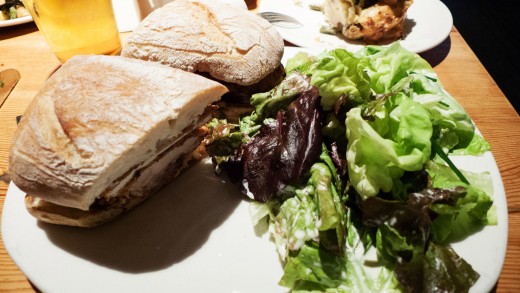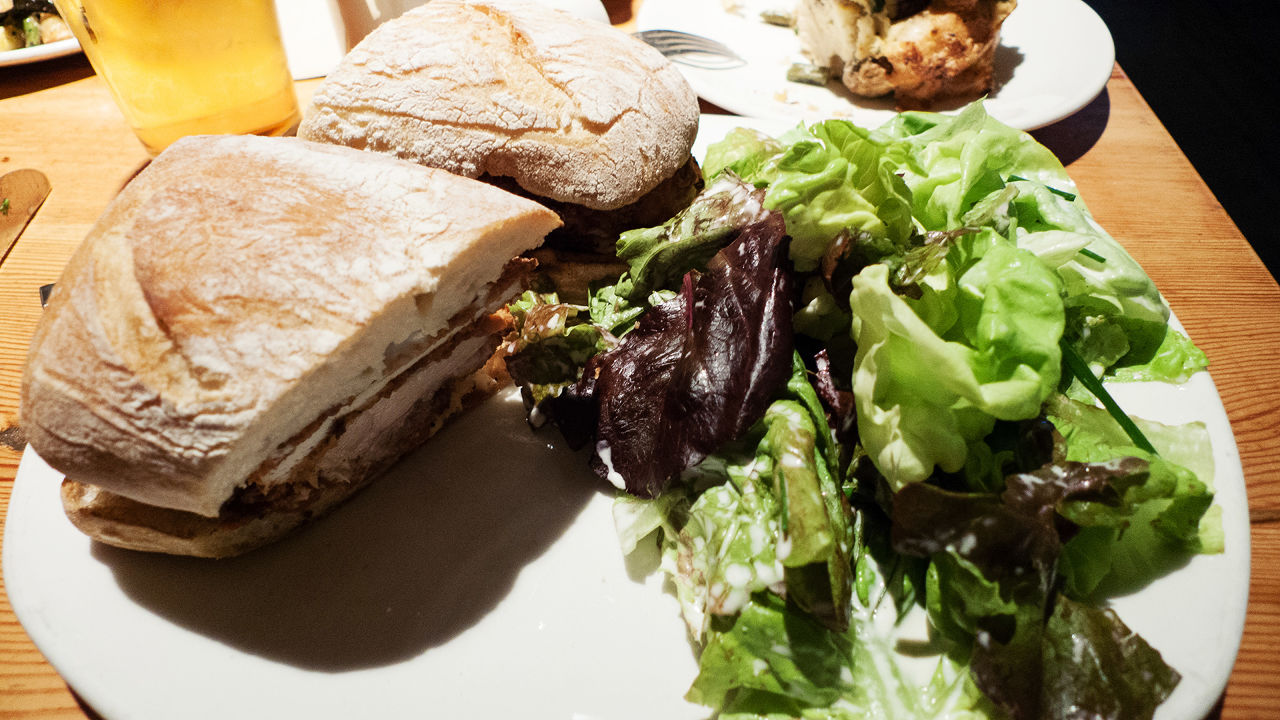Tender Greens And The Fast Casual “Sweet Spot”
What restaurateur Danny Meyer’s decision to invest in Tender Greens says about the continued growth of the “fast casual” eatery.
Restaurateur Danny Meyer is doing something unusual for a fine dining restaurateur: He’s investing in a chain restaurant. Union Square Hospitality, Meyer’s company, is investing in a California-based chain called Tender Greens. The restaurant owner is just the latest in a series of fine-dining titans who see big money in fast food-ish chain restaurants.
In the last year, Los Angeles’ Roy Choi and Daniel Patterson, New York’s David Chang, and José Andrés all entered the fast food and fast casual spaces. They join a limited circle of celebrity chefs such as Bobby Flay, Wolfgang Puck, and Gordon Ramsay who already have fast food-ish concepts of their own. And whether these entrepreneur chefs will admit it or not, their entry has a whole lot to do with the economy.
Living in Los Angeles, where Tender Greens is headquartered (well, in nearby Culver City), I’ve had the opportunity to eat at the chain several times. In terms of price point and service style, it falls somewhere in between Chipotle and a conventional restaurant with wait service. An entree or salad stops just short of $12. They have good steak sandwiches, chicken platters, and oversized salads. Food is served quickly, the line moves rapidly, and the food is amazingly consistent. It’s the sort of restaurant where an office can satisfy picky eaters and gluten-free types for takeout, and anyone can get a good meal in a rush.
Union Square’s investment has a lot to do with the kind of food Tender Greens serves and who purchases it. In San Francisco and Los Angeles, the chain’s demographic largely consists of white collar office workers, soccer moms, and foodies who would feel self-conscious walking into a McDonald’s but are okay with high-quality food that comes from a chain.
The other chef-driven restaurants are, on a macro basis, largely the same. Andrés’s Beefsteak is a vegetable-centric restaurant, currently testing in the Washington market, that harnesses the “incredible, unsung power of vegetables” with dishes like a kimchi salad and gazpacho bowls. Chang’s Fuku essentially serves artisianal spicy fried chicken sandwiches (think Chick-fil-A), and Choi and Patterson’s Loco’L makes hamburgers and chicken nuggets with the kind of ingredient sourcing you’d see at a high-end restaurant.
Restaurants like Tender Greens and Beefsteak belong to a category of restaurants called fast casual—think of chains like Chipotle, Shake Shack, and Panera Bread. Since 1999, market research firm Euromonitor says the market for fast casual restaurants has jumped 550%. In 2014, Americans spent more than $21 billion at fast casual restaurants.
Chefs like running these restaurants too. Fast Company‘s Liz Segran looked at why chefs enjoy running fast casual restaurants earlier this summer. Because these kinds of establishments require less attention to the dining room and server staff, they let restaurateurs focus on the food.
America’s recent recession was one of the best things that could happen to the fast casual space. Stripped of all the marketing lingo and brand positioning, fast casual chains essentially offer fast food at higher price points than conventional fast food chains, with better ingredient sourcing, (usually) better paid employees, and self-consciously trendy menu items like kale salad and egg white sandwiches. Stopping into Subway might feel shameful in some circles, but plopping down a few dollars more at Panera or Tender Greens is seen as an act of moral rectitude.
For lower-income customers, a meal at a chain like Tender Greens is an affordable luxury, while higher-income customers see a price point that’s no different from ordering a Seamless delivery meal or stopping by the deli across the street. For an expansion-hungry chain, that’s an extremely desirable niche.
No less a source than Nasdaq said fast casual restaurants are a large reason for a boom in the restaurant industry right now. Essentially, their labor costs are cheaper by comparison than full-service restaurants (which means they are affected less by issues such as higher minimum wages and health insurance), while their menu items sell for higher price points than fast food competitors.
Here in Los Angeles alone, the fast casual space includes 800 Degrees (pizza), Veggie Grill (vegetarian food), Mendocino Farms (sandwiches), Cabbage Patch (American), and a host of other local chains. For Meyer and other prominent chefs, expanding into casual dining means big profits and a chance to expand their brand footprint. The ultimate “sweet spot.”
Fast Company , Read Full Story
(192)














